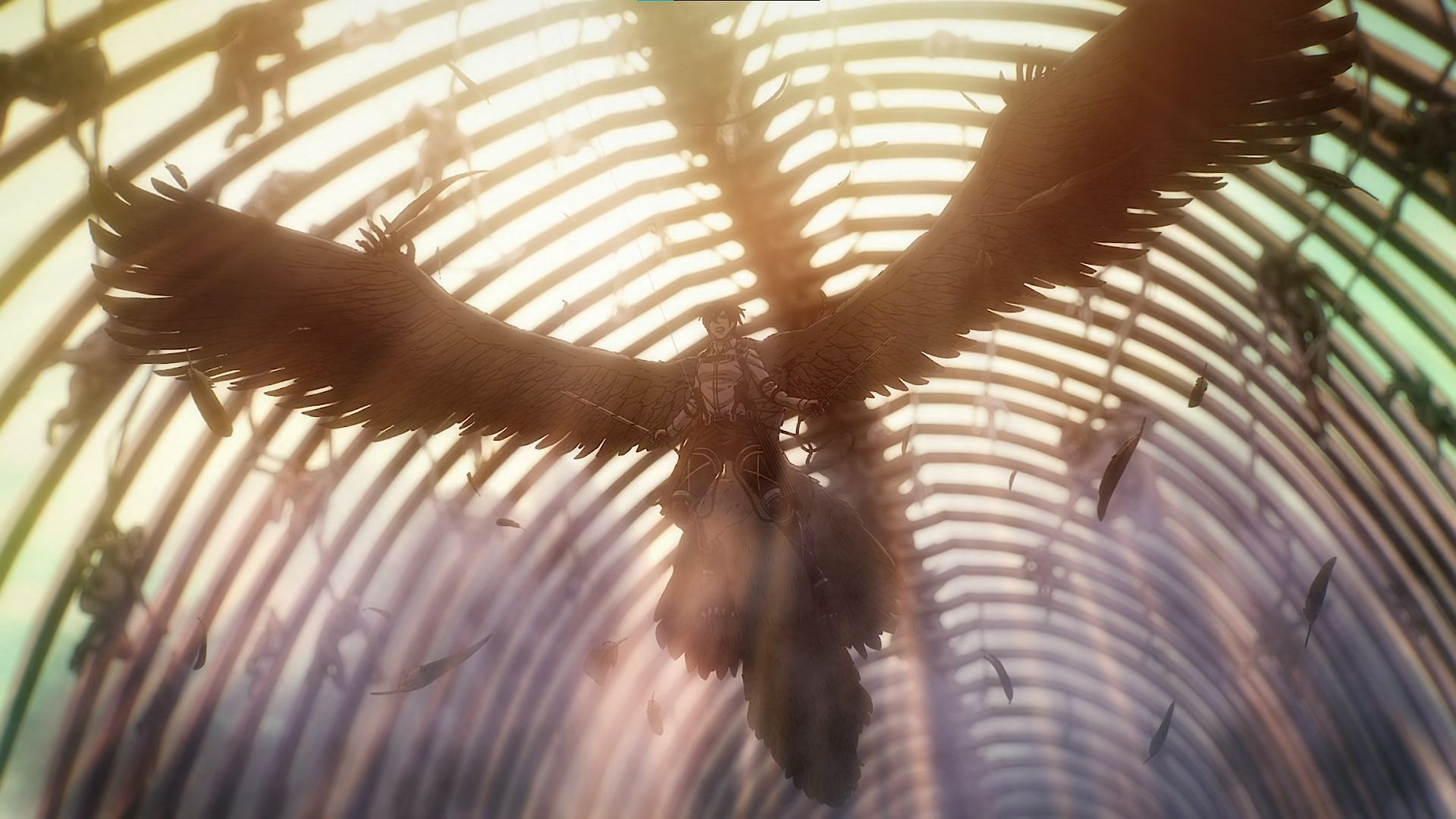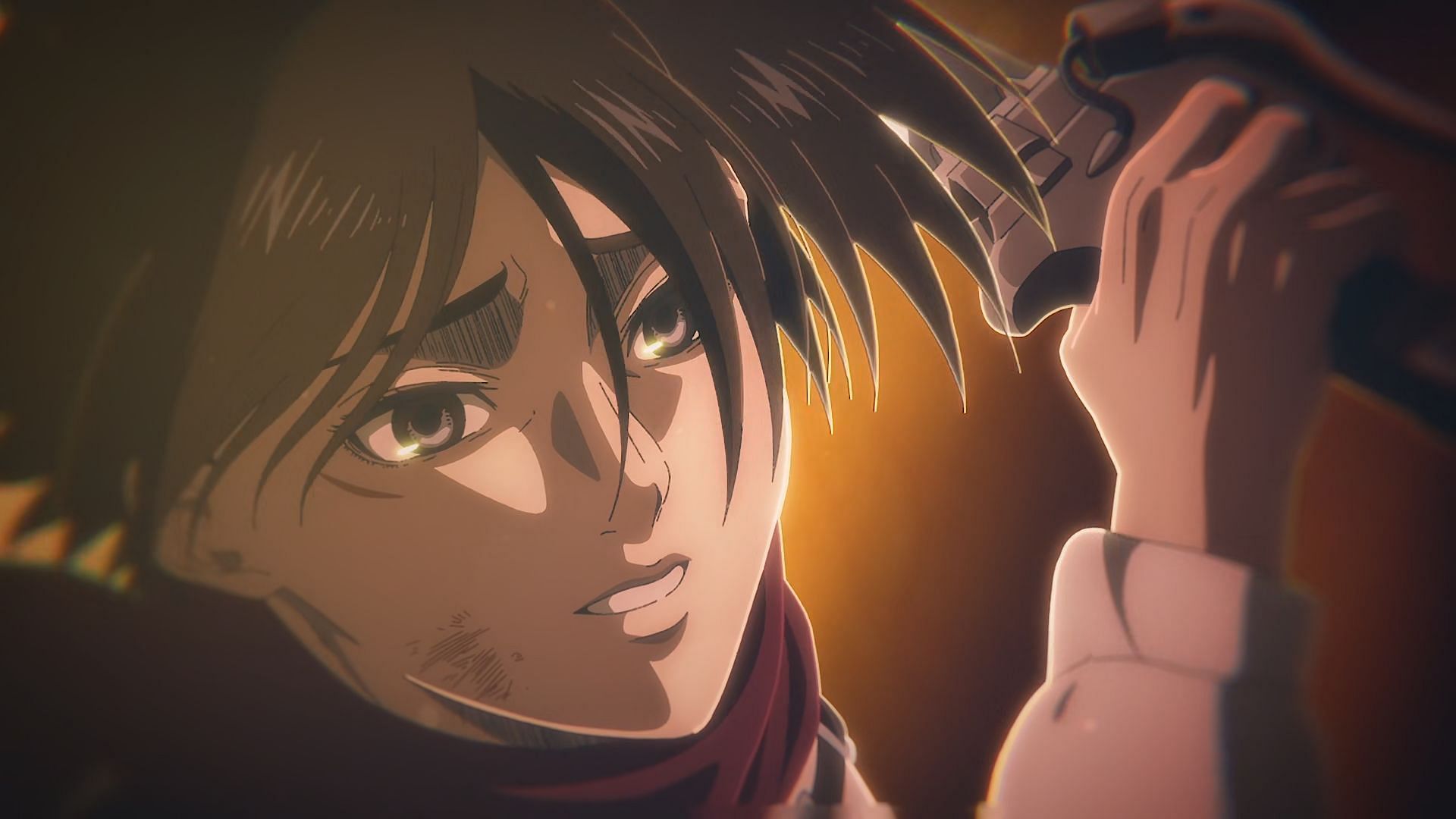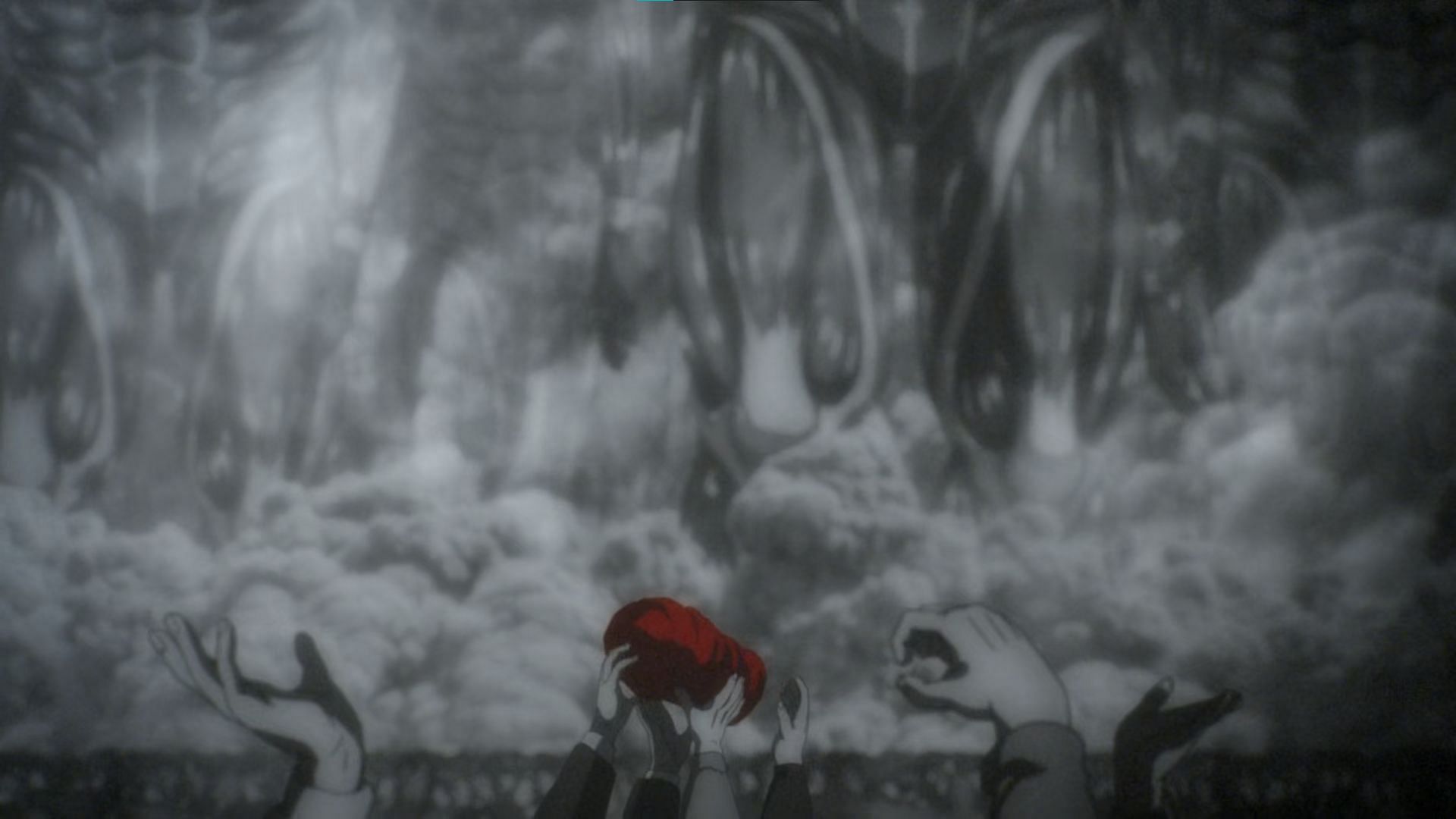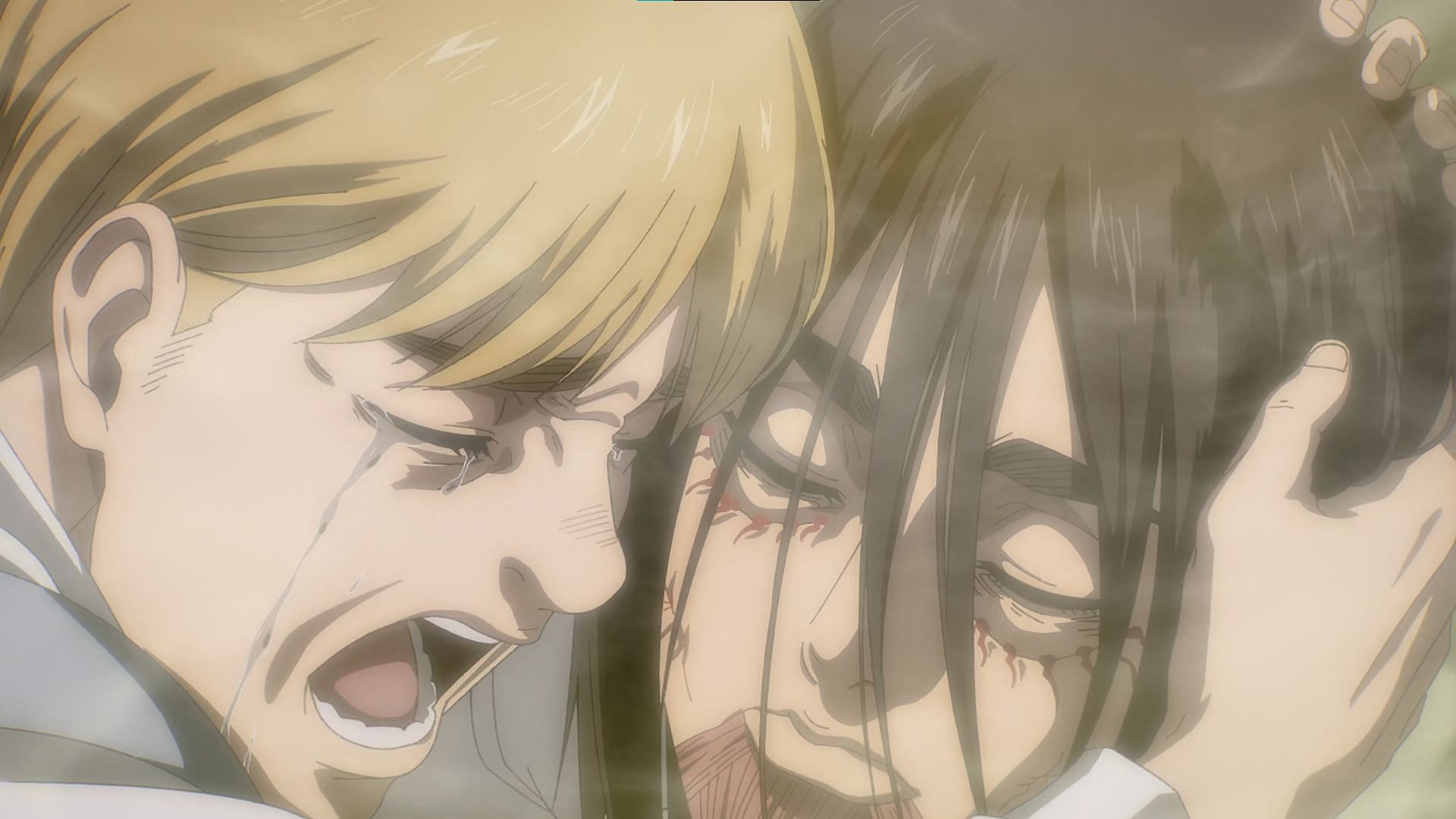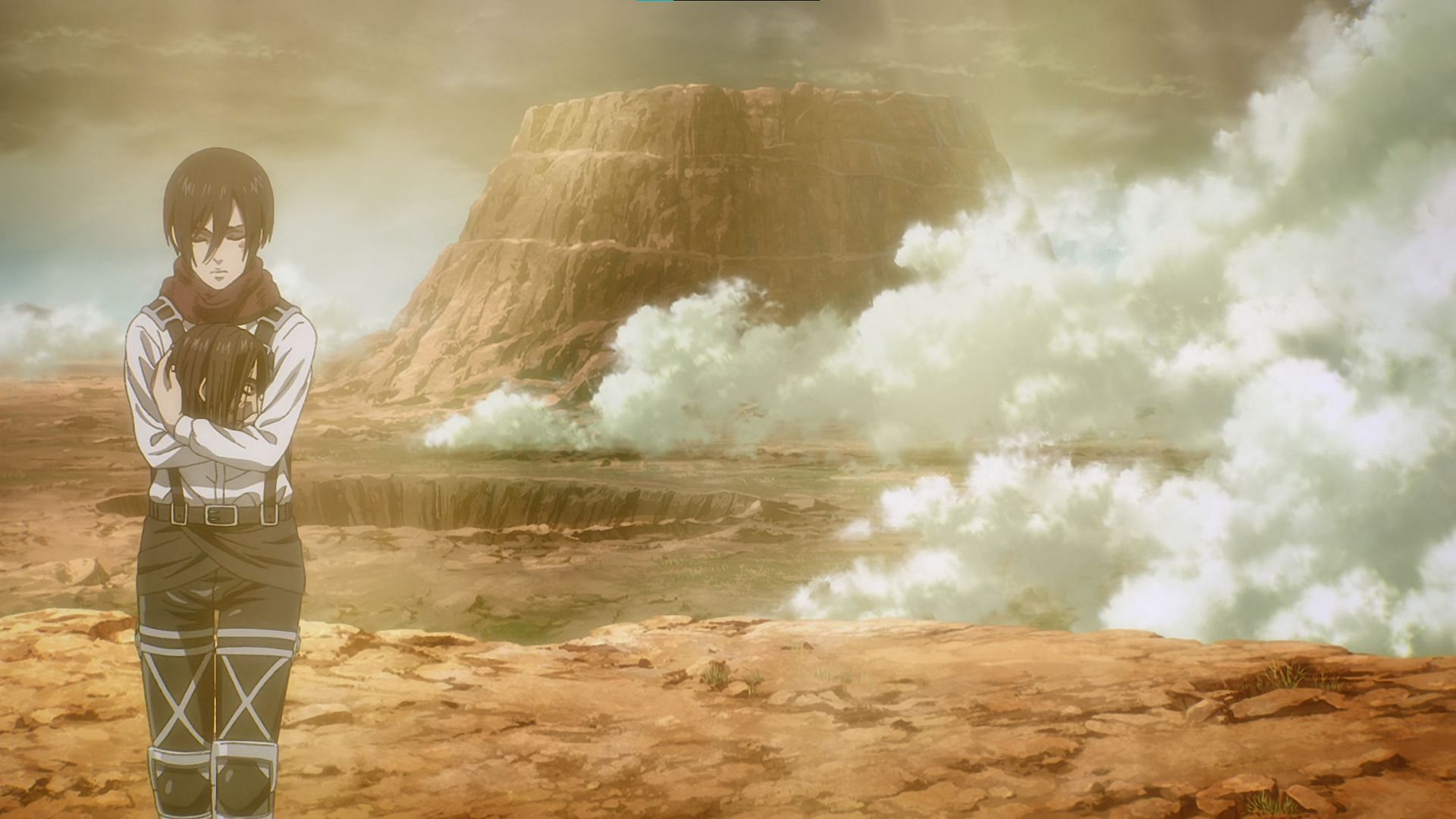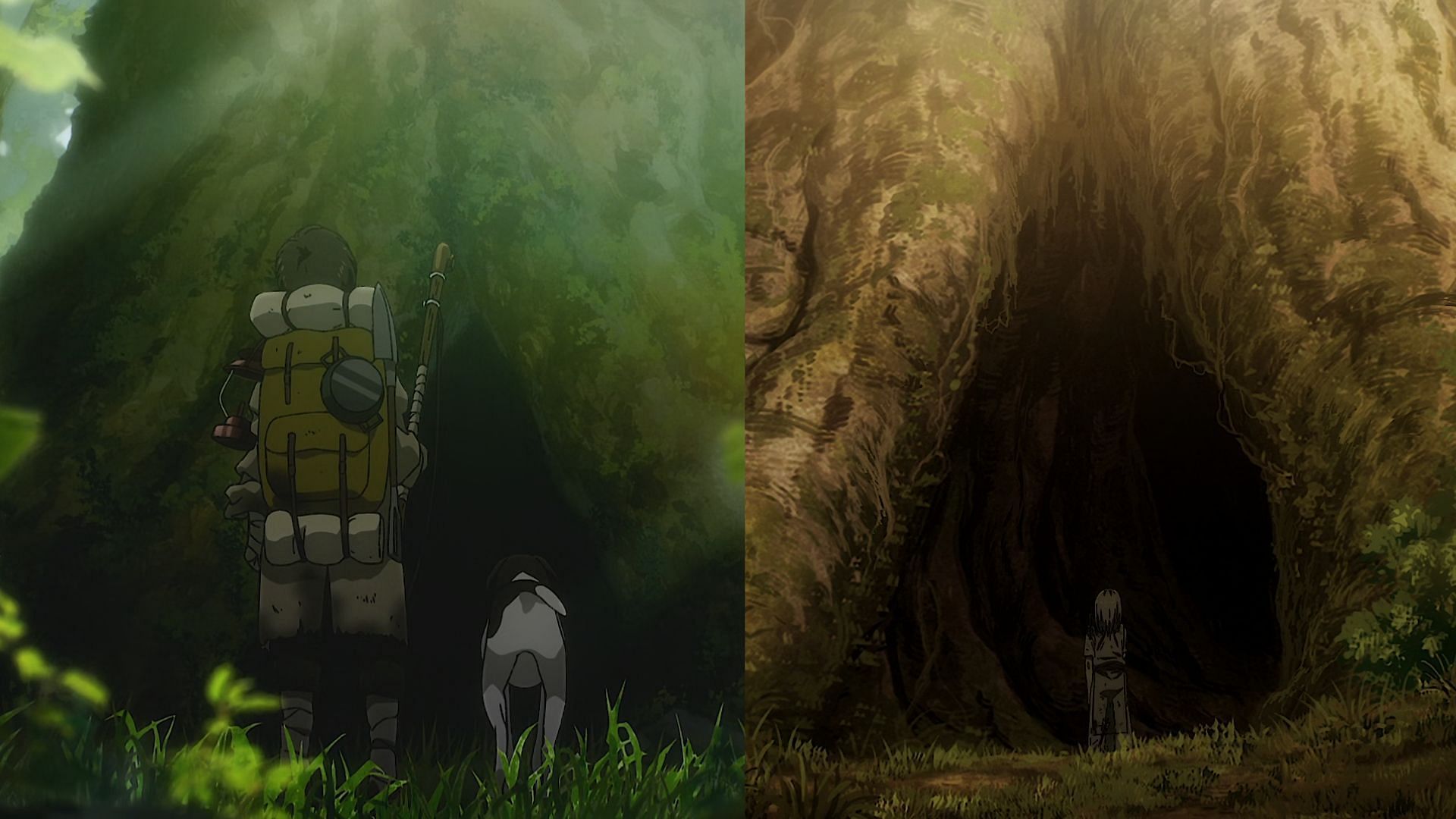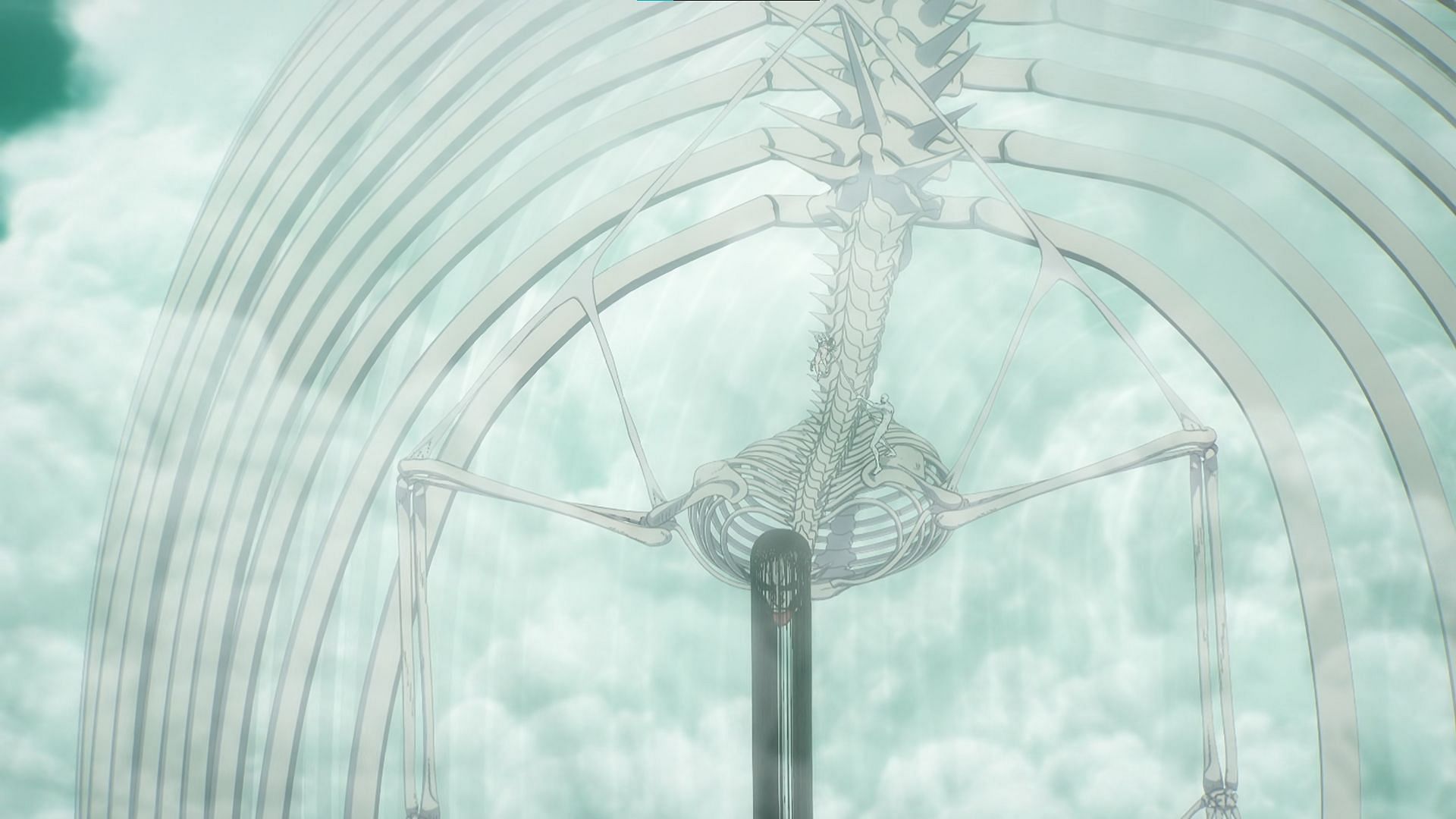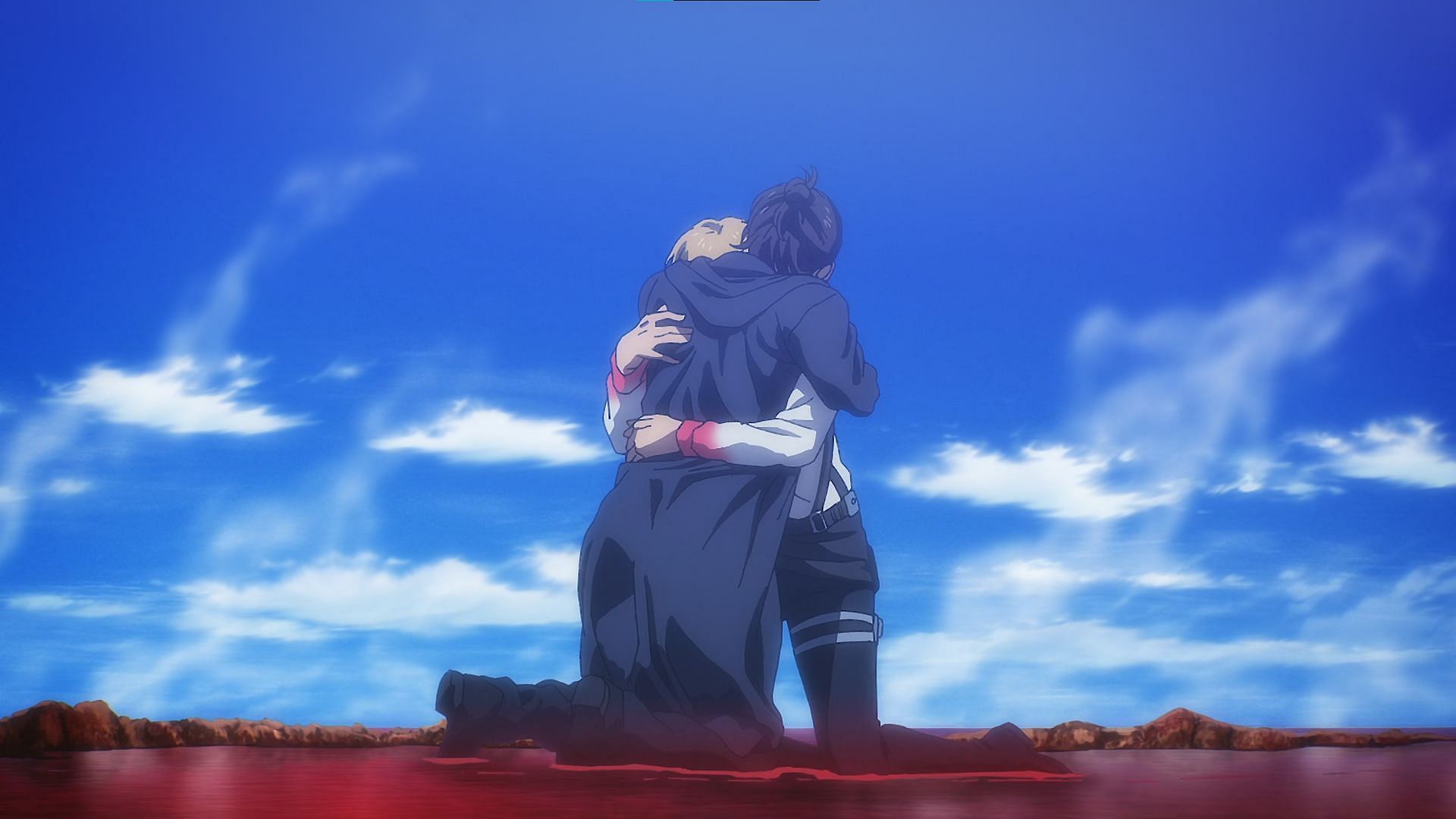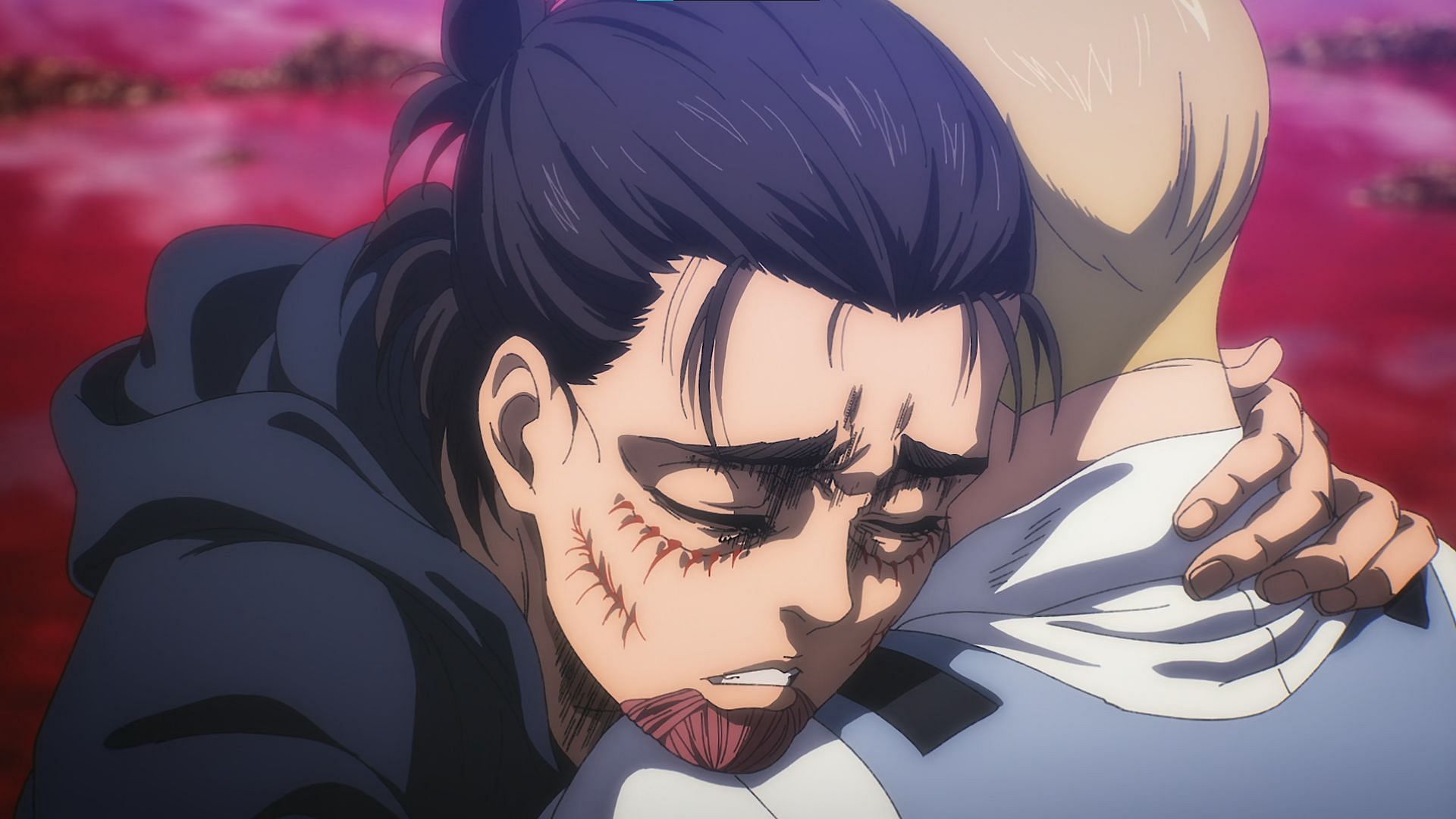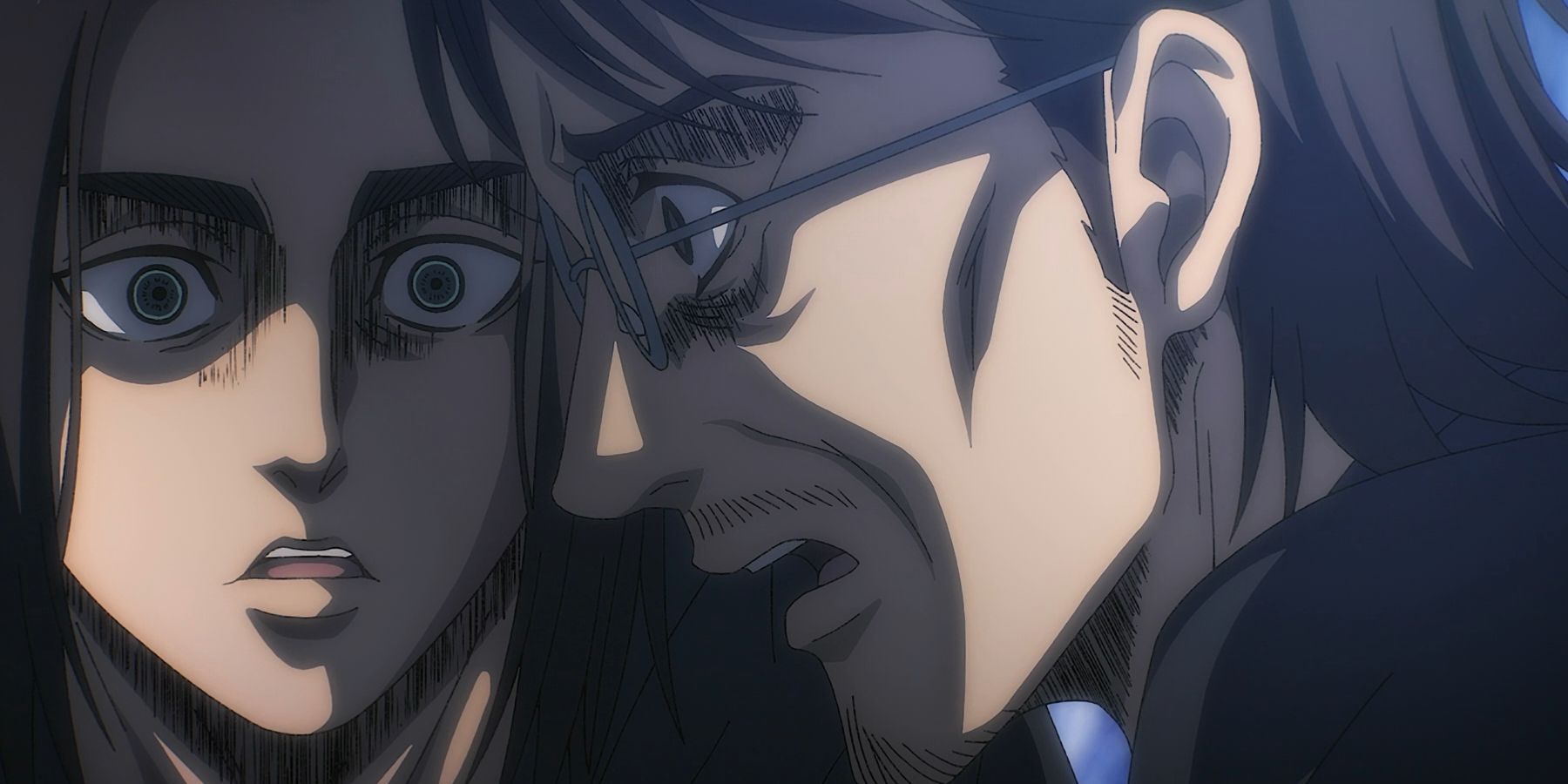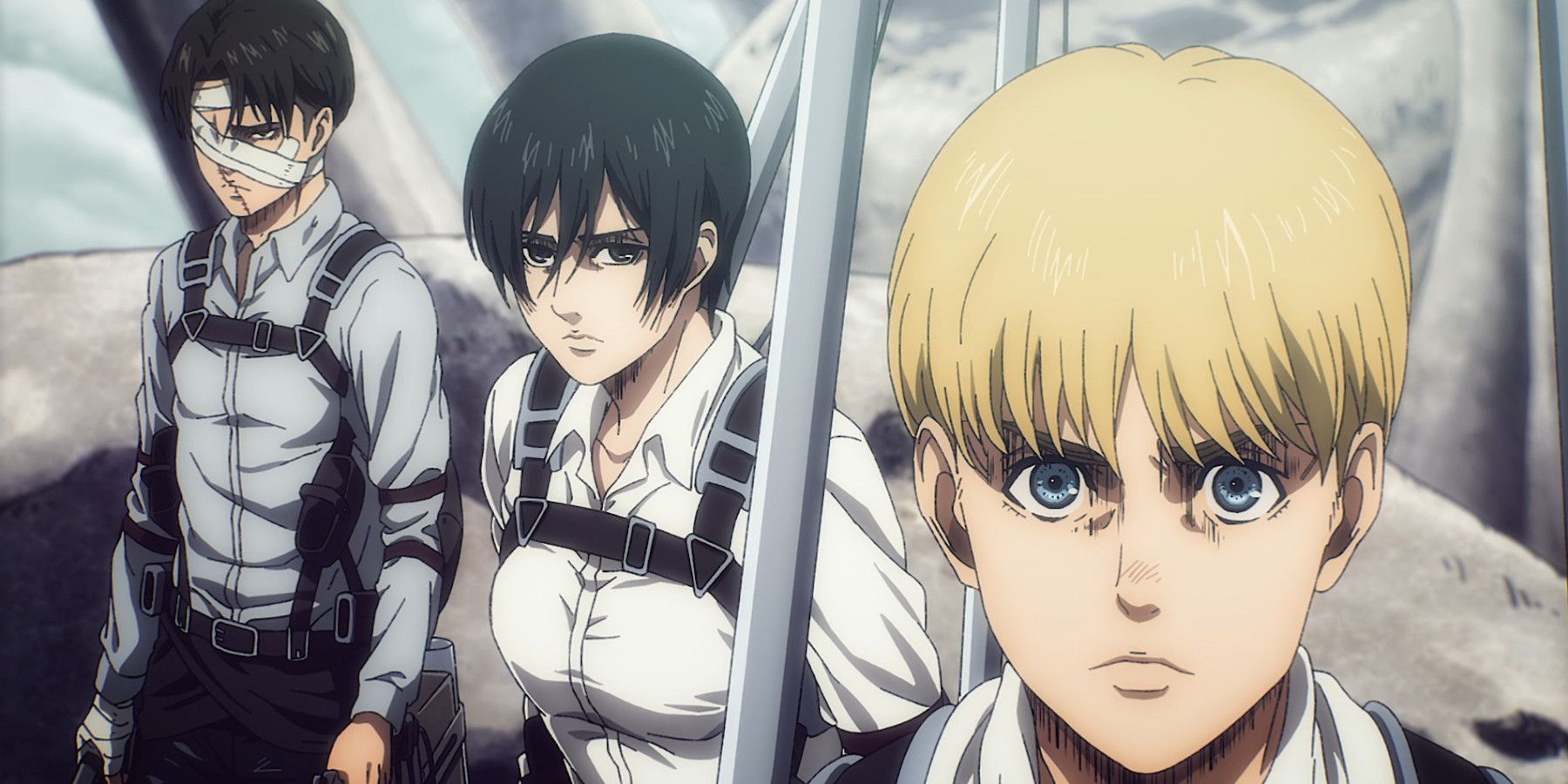
Exploring the Significance of Attack on Titan's Final Scene: Does the Epilogue Render the Entire Series Meaningless?

The highly anticipated finale of Attack on Titan has the anime community buzzing with excitement Explore the significance of the final scene and its impact on the entire series, delving into themes of despair, hope, love, and the price of freedom Discover the importance of regaining forgotten memories and the profound implications of a world without Eren Additionally, gain insights into the extended ending and its analogy to the manga conclusion A must-read for fans seeking a deeper understanding of the series
The Attack on Titan finale, after a series of "Final Season" segments, has the entire anime community abuzz with anticipation. As the decade-long journey of the series nears its conclusion, fans are grappling with the end of Eren Yeager's tale. The final episode spans 84 minutes and is divided into three chapters, alongside an introduction, an ending, and an extended ending.
The narrative of Attack on Titan has consistently taken audiences on an emotional rollercoaster, with the intensity reaching new heights in the season's finale. The controversial ending of the Attack on Titan manga has always served as a divisive point among fans. The scenes presented in the post-credits and extended ending strongly hint at the impending repetition of history.
The final episode of Attack on Titan reveals the unfolding story, its consequences on preceding events, and various elements of the ending. Please note that this article represents the writer's personal perspective.
Attack on Titan: The beginning of the ending
After a decade, the Attack on Titan anime has finally reached its conclusion, evoking a range of emotions among devoted fans. Through its ending and epilogue, the narrative sheds light on the innate imperfections of human nature, while emphasizing humanity's relentless pursuit to conquer them, despite repeated setbacks.
Attack on Titan: The Final Season- The Final Chapters Part 2 brings the journey of Eren, Mikasa, and Armin to a close, picking up where the previous installment left off. The story unfolds with the Scouts and the Warriors leaping from the aircraft piloted by Onyankoponon, engaged in a heated battle against the Beast Titan. Their descent onto the Founding Titan's stronghold sets the stage for the ultimate, decisive clash.
Chapter of despair
Mikasa in Attack on Titan's finale (Image via Mappa)
In Attack on Titan's finale, Chapter 3 titled "The Battle of Heaven and Earth," the group of protagonists successfully defends against The Beast Titan. However, their victory is short-lived as they are swarmed by titans from previous titan holders, causing them to struggle with their plans. Armin is abducted by the Okapi Titan, while Pieck is incapacitated by the Warhammer titan and fails to destroy the Founding Titan's neck.
Just as defeat seems inevitable, Falco Grice's Jaw Titan, capable of flying, comes to their rescue. With Falco's help, they regroup and adapt their strategies. Splitting into two teams, one sets out to rescue Armin while the other attacks the founder's vulnerable spot. The battle continues, and once again, they face seemingly certain defeat, with no end to despair in sight.
In the final episode of Attack on Titan, Mikasa is showcased (Image via Mappa).
Armin, too, finds himself in a trance-like state. However, witnessing his friends facing imminent danger while he remains helpless and can only observe leaves him deeply tormented. The concluding tone of Chapter 3 in Attack on Titan's season finale captures a time of absolute despair, where the remaining few humans are on the brink of being trampled over.
Hope revived
The baby representing hope in Attack on Titan (Image via Mappa)
Chapter 4 of the Attack on Titan finale is titled "A Long Dream." Armin seeks assistance from Zeke Yeager and other previous Titan users. With their support, Mikasa and Annie successfully free Armin, and Levi ultimately beheads Zeke. This death brings an end to the rumbling. Additionally, Jean destroys the neck of the Founding Titan, exposing the Shining Centipede, which granted the Founder Ymir Titan powers. To halt the centipede and Eren, Armin undergoes a transformation, causing destruction in the surrounding area.
These events in the Attack on Titan series play a crucial role in restoring hope to the world. This foreshadowing began in Chapter A, where humanity defied overwhelming despair to rescue a baby from certain death. Initially depicted in monochrome, the scene featured the baby's red towel as the sole hint of color. As the rumbling ceased, color returned to the entire scene, altering the episode's somber atmosphere.
Love is the price of freedom
However, their optimism was swiftly dashed when they found themselves thrust into the ultimate confrontation against Eren's Attack Titan and a horde of titans brought to life by the centipede's mysterious vapor, which had the power to transform the surrounding Eldians.
During the ultimate showdown between Eren's Attack Titan and Armin's Colossal Titan, Mikasa finds herself overwhelmed with memories of her and Eren. As these recollections flood her mind, she becomes aware of Eren's whereabouts. Determined, she shatters the Attack Titan's teeth and charges into its mouth, where she ultimately decapitates Eren, finally liberating him from his prolonged nightmare. Throughout this climactic moment, the Founder Ymir silently observes the events unfold.
Mikasa was able to achieve something she had been unable to do for 2000 years, breaking a curse in the process. She managed to surpass her emotions and make the right choices without being blinded by love, a task that the founder, Ymir, was unable to accomplish during two millennia.
This realization brought Mikasa a sense of inner peace, while Eren, in turn, obtained the freedom he had yearned for. However, this freedom came at the cost of forsaking his love and the potential future he could have had with Mikasa.
Regaining forgotten memories
Armin after Eren's death in Attack on Titan (Image via Mappa)
Eren's death marks the turning point in the story as we enter the final chapter of Attack on Titan's last episode, titled "Towards the Tree on That Hill". Our journey begins with a heartwarming scene featuring young Eren and Armin, reminiscing and exploring the familiar town where they grew up. While they visit various places they had once dreamt of seeing together, it becomes evident that they are maturing alongside each passing moment.
The serene atmosphere takes a sharp turn towards the end of the scene, as the once-familiar landscape transforms into the aftermath of the devastating rumbling. Amidst a sea of blood, a conversation unfolds between Eren and his friends that would certainly be remembered as one of the most memorable scenes in all of Attack on Titan. These significant events occurred within the concealed realm where Eren unveiled his controversial plans, setting forth on a path that would forever alter their futures.
But eventually, he wiped their memories clean, waiting for the opportune moment when he would no longer be alive. Fast forwarding to the present, Mikasa, Armin, and a few others recollect the memories of their final confrontation with Eren, instantly plunging them into a gloomy state as they finally comprehend his ulterior motives, causing them immense despair.
A world without Eren
After a time skip of 3 years, the final episode of Attack on Titan portrays the world gradually healing from the catastrophic aftermath of the Rumbling. In a poignant moment, Mikasa stands beside the grave of Eren, situated beneath the tree atop the hill seen in the very first scene of Attack on Titan season 1 episode 1. Anticipating the return of her comrades, her poised demeanor is interrupted by the sudden arrival of a majestic white bird.
As the bird reaches for her scarf, it suggests that the bird is likely a reincarnation of Eren. Some fans may find this idea absurd, but Eren always yearned to be liberated like a bird, and it appears his desire has been fulfilled. In the closing scenes of the Attack on Titan finale, it is revealed that all of Eren's friends gather at his grave. Mikasa is shown to have formed a relationship with Jean, and after her passing, she is laid to rest at the same location as Eren. It seems that she lived a long and tranquil life.
Mikasa in the final episode of Attack on Titan (Image via Mappa)
The scenery surrounding the burial site undergoes continuous transformations over time. Urban centers spring up, and even in the present era, the tree stands as a silent observer, bearing witness to the unfolding of countless occurrences in its vicinity. Eventually, these cities succumb to bombardment, resulting in the obliteration of all that exists once more.
The extended ending makes a fair point
Mappa's image displays the Founder Ymir and the child from the extended ending of Attack on Titan.
The extended ending of Attack on Titan's finale has left some viewers feeling perplexed and deeming it unnecessary. During the closing credits, the ending showcases the resurgence of war in the human world. In a post-apocalyptic setting, a child and their faithful canine companion stumble upon the tree beneath which Eren's grave rests. Remarkably similar to the tree where Founder Ymir acquired the Titans' power from the source of all living matter, known as the Shining Centipede by Gabi Braun.
The extended ending suggests that history repeats itself, and despite attempts to achieve peace, humanity always returns to violence and war. The events in the epilogue of Attack on Titan may give the impression that Eren and his friends' efforts were futile, as the peaceful world they created ultimately declined.
In a complex narrative like Attack on Titan, discovering minor flaws or inconsistencies is not unusual. Yet, the bonus ending serves as a reminder that conflicts are unavoidable, regardless of humanity's efforts to evade them. This adds a realistic aspect to the story, exposing the true essence of humanity.
Eren’s true purpose
The Founding Titan (Image via Mappa)
When Eren assumed the role of the antagonist in Attack on Titan, it left many fans feeling disheartened, which is understandable. Nobody wants to witness their favorite heroes turning into villains. Nevertheless, Eren had a clear objective: to guarantee a lasting and secure future for his friends and the inhabitants of Paradis Island, shielding them from external threats. With the ability to perceive both the past and the future, Eren understood that the only path to achieving his goal was by embracing the role of the villain, thus allowing his friends to become the heroes of the world.
By doing so, they would be regarded as humanity's saviors and earn the admiration of the rest of the world, ensuring their safety and future. Eren was unsure if they could successfully accomplish this feat. Additionally, he was uncertain if they would all survive, taking into account the deaths of Sasha and Hange. The loss of his friends deeply saddened him, but he was determined to persist with his plans, reminding himself to fight until the very end (Tatakae!).
In the finale of Attack on Titan, Armin embraces Eren (Image via Mappa).
During their final conversation in the Path, Eren asserts that the outcome they were heading towards was unavoidable. He took a calculated risk, where in the event of failure, he would carry out the Rumbling, causing the extinction of all humanity outside the walls. Many followers of Attack on Titan's fan base believed that this ending rendered Eren's entire journey meaningless, but this may not necessarily be true.
Eren's unwavering pursuit of freedom continued until his final moments. Through his ultimate sacrifice, he not only achieved freedom but also ensured a secure and prosperous future for his friends and the people of Paradis. Furthermore, he successfully eradicated the Titans from the world, granting his fellow titan-holders the opportunity to live long and fulfilling lives. For now, peace reigns over the world—a testament to Eren's words about the inevitability of avoiding tragedy. These hardships and accomplishments hold tremendous value, as
An analogy between the anime and manga endings of the series Attack on Titan
illustrates.
The fanbase has expressed backlash towards the conclusion of the Attack on Titan manga, primarily due to the conversation between Eren and Armin. The presentation of their dialogue and the characterization of Eren at the end of the manga have resulted in the fandom being divided into two sections.
In the manga, Armin admonishes Eren, stating, "For our sake, you have tragically become a mass murderer. I vow to ensure that this grave error you're committing does not go unnoticed." However, this dialogue seems insufficient in capturing the true gravity of the moment. Some within the Attack on Titan fandom even argue that this portrayal glorifies the act of genocide or suggests Eren's absolution.
Eren and Armin in Attack on Titan (Image via Mappa)
The Attack on Titan anime depicted the scene in a distinctly different manner than the manga, showcasing notable alterations in the dialogue that transformed the conversational tone. Consequently, numerous viewers have perceived a closure-like sentiment, believing that this is the intended emotional atmosphere projected by the creator, Hajime Isayama. In the animated adaptation, the dialogue between Armin and Eren takes a divergent course. Armin expresses his appreciation towards Eren for enlightening him about the world beyond the walls and all the wonders they had hoped to explore together.
Additionally, Armin takes responsibility for the ensuing outcome, recognizing that he was the one who initially introduced the concept of freedom to Eren. Notably, Armin's reaction to the news of genocide differs in the anime, as he refrains from blaming Eren but instead shares the burden of eliminating eighty percent of humanity. United, they pledge to face the consequences of their actions side by side and vow to reunite in hell, should such a place exist. The scene culminates in a heartfelt embrace, leaving fans captivated by a myriad of emotions.
Final Thoughts
Saying goodbye to one of the community's beloved franchises, such as Attack on Titan, can be difficult. The story was captivating, but the ending may leave fans feeling empty and dejected due to the extensive loss and devastation portrayed. Ultimately, this conclusion seems fitting for the series.
Given the destruction and chaos throughout, a happy ending appears implausible. Hajime Isayama, the creator of Attack on Titan, had envisioned this melancholic ending from the start. The long dream sequence experienced by Eren in the opening scenes of the series foreshadowed this outcome. With its incredible storyline and breathtaking animation by Mappa, Attack on Titan takes fans on an unforgettable journey.
Editor's P/S
As a Gen Z fan, I have mixed feelings about the Attack on Titan finale. On the one hand, I am satisfied with the conclusion of the story and the way it addresses the themes of freedom, love, and hope. On the other hand, I feel that the epilogue undermines the impact of the ending and renders the entire series somewhat meaningless.
The ending of Attack on Titan is bittersweet. Eren Yeager, the protagonist, achieves his goal of freeing the Eldians from their oppressors, but at a great cost. He sacrifices his own life and destroys the world in the process. The epilogue, however, suggests that the cycle of violence will continue, as Eren's friends and followers are forced to fight against a new enemy. This undermines the message of hope that the ending seemed to offer and suggests that there is no escape from the cycle of violence.
